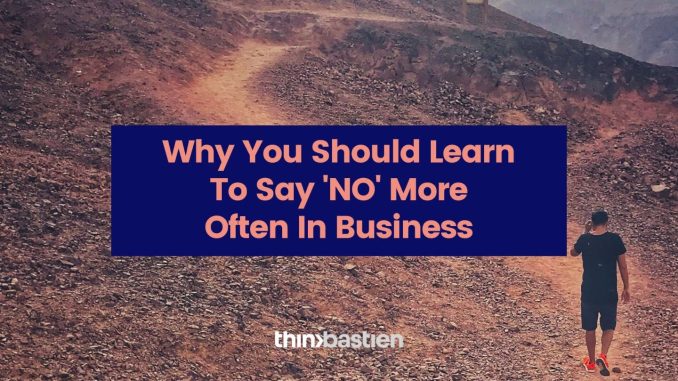
In a business landscape that often celebrates growth at all costs, the idea of turning away potential customers can seem counterintuitive. Yet, learning to say “we’re not for you” is one of the most strategic and empowering decisions a company can make. It reflects clarity of purpose, confidence in value, and a commitment to serving the right audience rather than chasing every opportunity. Businesses that embrace this mindset tend to build stronger brands, foster deeper customer loyalty, and operate with greater efficiency. It’s not about exclusion—it’s about alignment.
Every product or service is designed with a specific user in mind, even if that intention isn’t always clearly articulated. When businesses try to appeal to everyone, they risk diluting their message, compromising their quality, and confusing their market. A brand that tries to be all things to all people often ends up being forgettable to most. On the other hand, companies that define who they serve—and just as importantly, who they don’t—create sharper positioning and more meaningful connections. A boutique consulting firm, for example, might specialize in helping early-stage startups build operational frameworks. If a large corporation approaches them for enterprise-level support, the firm might decline, recognizing that their expertise and processes are tailored to a different scale. That decision isn’t a loss—it’s a strategic choice that preserves focus and integrity.
Saying “we’re not for you” also helps protect internal resources. Serving misaligned customers can drain time, energy, and morale. Teams may find themselves bending over backward to meet expectations that don’t fit their capabilities or values. This misalignment can lead to frustration, missed deadlines, and compromised outcomes. By being upfront about fit, businesses can avoid these pitfalls and ensure that their efforts are directed toward relationships that are mutually beneficial. A software company that builds tools for creative professionals might choose not to cater to enterprise clients with rigid procurement processes, knowing that the customization and bureaucracy involved would detract from their core mission.
This kind of clarity also enhances the customer experience. When businesses are transparent about who they serve best, they set realistic expectations and foster trust. Customers appreciate honesty, even if it means being referred elsewhere. In fact, a respectful “no” can leave a lasting impression and lead to referrals or future opportunities. A restaurant that focuses on locally sourced, seasonal menus might not accommodate large parties or special requests, but by clearly communicating their approach, they attract diners who value that philosophy. The result is a more authentic and satisfying experience for both sides.
From a branding perspective, saying “we’re not for you” reinforces identity. It signals that a business knows what it stands for and isn’t willing to compromise for short-term gain. This kind of conviction resonates in a crowded marketplace, where differentiation is key. Brands that are unapologetically themselves tend to attract loyal followers who share their values. A fashion label that champions sustainable materials and ethical labor practices might choose not to sell through fast-fashion retailers, even if it means slower growth. That decision strengthens their brand narrative and deepens their connection with conscious consumers.
Financially, focusing on the right customers can lead to better margins and more predictable revenue. Serving a niche audience often allows for premium pricing, tailored offerings, and lower churn. Businesses can invest in refining their products and services rather than constantly adapting to disparate needs. A digital marketing agency that specializes in helping wellness brands might develop proprietary tools and strategies that deliver exceptional results within that vertical. By staying true to their niche, they build expertise, streamline operations, and create a reputation that drives inbound interest.
Of course, learning to say “we’re not for you” requires courage and discipline. It means turning down revenue, walking away from tempting opportunities, and trusting that focus will yield better outcomes. It also requires clear communication—internally and externally. Teams need to understand the company’s ideal customer profile, and messaging must reflect that clarity. This alignment ensures consistency across sales, marketing, and service delivery. When everyone is on the same page, the business operates more cohesively and with greater purpose.
In a broader sense, this approach reflects a shift from transactional thinking to relational thinking. It’s about building long-term partnerships rather than chasing short-term wins. Businesses that prioritize fit over volume tend to cultivate deeper relationships, better feedback, and more meaningful impact. They become known not just for what they do, but for how they do it—and for whom. This reputation becomes a powerful asset, attracting the right opportunities and repelling the wrong ones.
Ultimately, saying “we’re not for you” is not a rejection—it’s a refinement. It’s a way of honoring your mission, respecting your team, and serving your customers with integrity. In a world that often equates success with scale, this mindset offers a different kind of growth—one rooted in clarity, authenticity, and alignment. For businesses willing to embrace it, the rewards are not just financial—they’re cultural, operational, and deeply human.